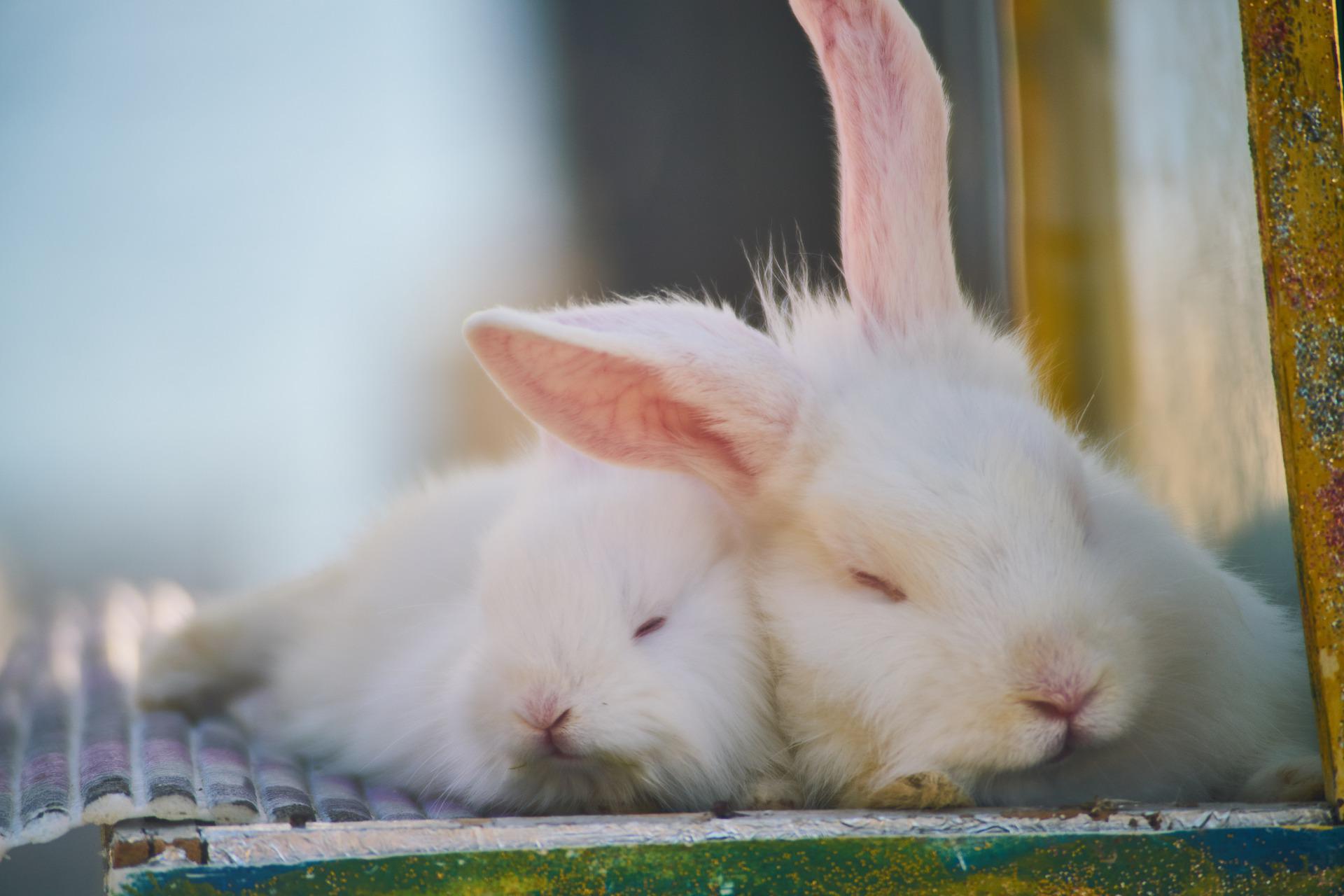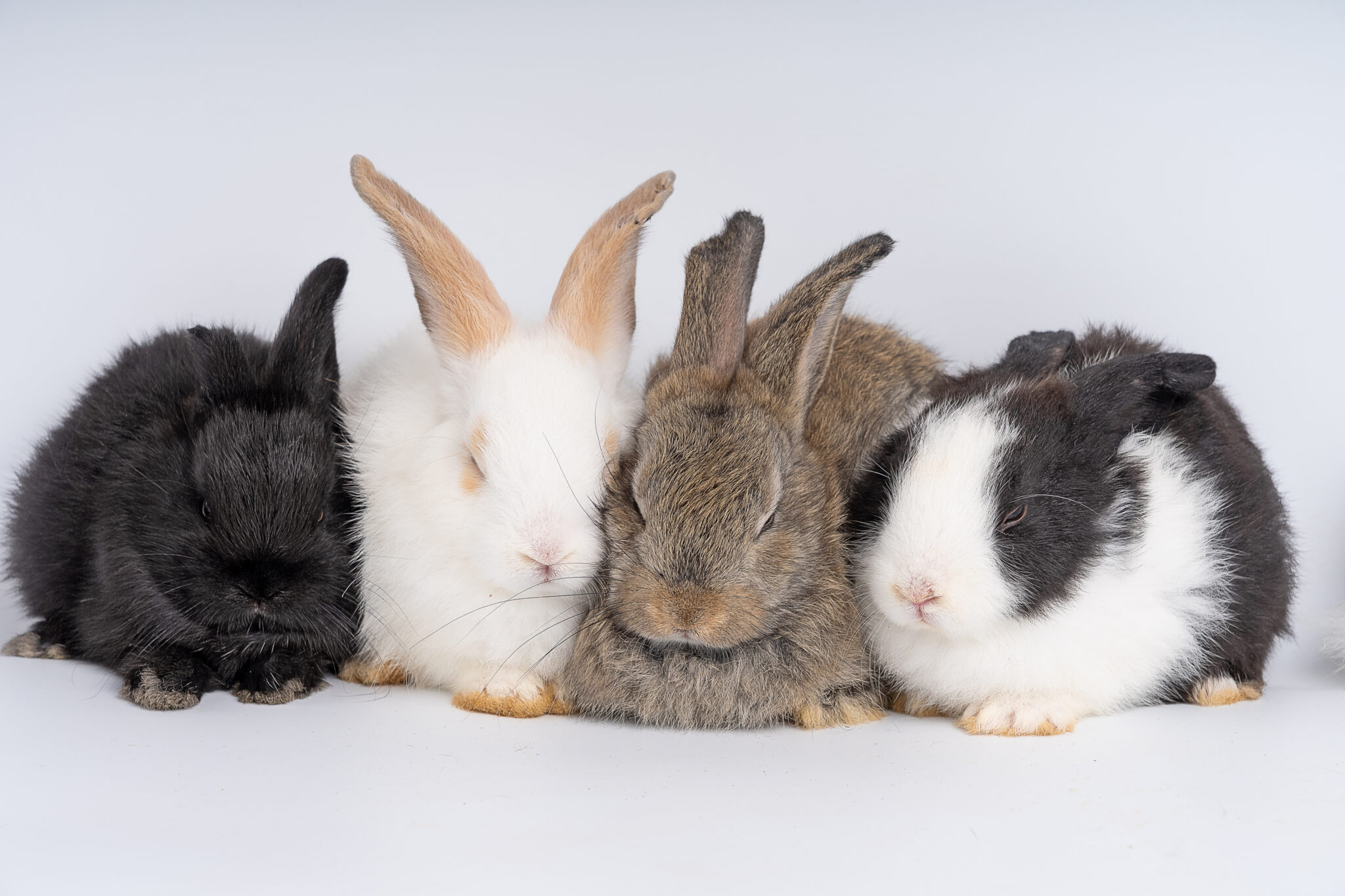Ever wondered if rabbits actually sleep? Well, buckle up because we're diving deep into the world of bunny bedtime habits. Rabbits are fascinating little creatures, and their sleep patterns are just as intriguing as their twitchy noses and fluffy tails. If you've ever caught your rabbit staring off into space or hiding in a corner, you're not alone. Let's uncover the mystery behind their rest routines and why it matters for your furry friend.
Now, you might be thinking, "Do rabbits even sleep?" The short answer is yes, but their sleep isn't like ours. Rabbits are crepuscular animals, meaning they're most active during dawn and dusk. So, if you're wondering why your bunny seems to be wide awake while you're catching some Z's, it's all part of their natural rhythm. Understanding this can help you bond better with your pet.
Let’s face it, knowing when and how rabbits sleep is crucial if you want to keep them happy and healthy. Whether you're a first-time rabbit owner or just curious about these adorable creatures, this article will give you all the deets. From their sleep cycles to creating the perfect nap spot, we've got you covered. So, grab a cup of coffee, and let's hop into the world of bunny bedtime.
- Darby And Kiera Update 2024 The Latest Scoop You Donrsquot Want To Miss
- Unveiling The World Of Filmy 4webcom Your Ultimate Movie Destination
Why Do Rabbits Sleep Differently?
Have you ever noticed that rabbits don’t exactly crash out like humans do? That’s because their sleep patterns are deeply tied to their wild ancestors. In the wild, rabbits are prey animals, meaning they’re constantly on high alert for predators. This has shaped their sleep habits in some pretty interesting ways. They don’t just flop down and snooze for hours – instead, they take short bursts of sleep throughout the day.
Rabbits are what we call "light sleepers." They can nap with one eye open, literally. This allows them to stay aware of any potential threats while still getting the rest they need. It's like having a built-in security system. If you’ve ever seen your rabbit twitch or suddenly wake up at the slightest noise, it’s because their survival instincts are always switched on.
How Much Sleep Do Rabbits Need?
So, how much shut-eye does a bunny actually need? On average, rabbits sleep for about 8 to 12 hours a day. But here’s the kicker – they don’t do it all at once. Instead, they take short naps spread throughout the day and night. Their peak activity times are during the early morning and late afternoon, which is when they’re most likely to be up and about.
- Lacy Kim Onlyfans Leak The Full Story You Need To Know About
- Is Neil Flynn Married Unveiling The Personal Life Of A Beloved Actor
Think of it like this: rabbits are the ultimate multitaskers when it comes to sleep. They can nap, groom, and even nibble on snacks while keeping one ear tuned to the world around them. This makes them super adaptable but also means they need a safe and quiet environment to truly relax.
Understanding Rabbit Sleep Cycles
Now that we know rabbits sleep differently, let’s break down their sleep cycles. Unlike humans, who typically go through four stages of sleep, rabbits have a simpler system. They alternate between light sleep and deep sleep in short bursts. During light sleep, they’re still pretty alert and can wake up easily. In deep sleep, they’re more relaxed, and you might notice their body go completely limp.
Another cool thing about rabbit sleep is their REM (Rapid Eye Movement) phase. Just like humans, rabbits dream! You might catch your bunny twitching or moving their legs during this phase. It’s adorable to watch and a sign that they’re getting quality rest. However, REM sleep is much shorter for rabbits compared to humans, lasting only a few minutes at a time.
What Does a Sleeping Rabbit Look Like?
If you’re new to rabbit ownership, you might be wondering what a sleeping rabbit looks like. Well, it can vary! Some rabbits curl up into a tight ball, while others stretch out flat like little furry rugs. It all depends on their personality and how comfortable they feel in their environment.
- Some rabbits tuck their legs under their body and rest their head on the ground.
- Others prefer to sprawl out with their legs stretched out behind them.
- And then there are those who sleep upright, leaning against a wall or furniture.
It’s all about what makes them feel safe and secure. If your rabbit is sleeping in a variety of positions, it’s a good sign that they trust you and their surroundings.
Creating the Perfect Sleep Environment for Your Bunny
Now that we know how and why rabbits sleep, let’s talk about creating the ideal sleep space for your furry friend. A comfortable and safe environment is crucial for ensuring your rabbit gets the rest they need. Here are some tips to help you set up the perfect bunny bedroom:
Choose the Right Location
First things first, pick a quiet and low-traffic area for your rabbit’s sleeping space. They need a place where they won’t be disturbed by loud noises or sudden movements. A corner of the room or a secluded area works best. Just make sure it’s still close enough for you to keep an eye on them.
Add Comfortable Bedding
When it comes to bedding, rabbits love soft and cozy materials. You can use fleece blankets, hay, or even a specially designed rabbit bed. Just make sure whatever you choose is safe for them to chew on, as rabbits are notorious nibblers. Avoid anything with small parts or strings that could pose a choking hazard.
Provide a Hiding Spot
Rabbits feel safest when they have a place to retreat to. Consider adding a hidey-hole or burrow to their sleeping area. This gives them a sense of security and mimics their natural habitat. You can use a cardboard box, a wooden hideout, or even a soft fabric tunnel. The key is to make it inviting and easy to access.
Signs Your Rabbit Isn’t Getting Enough Sleep
Even with the best setup, sometimes rabbits can struggle to get enough rest. If you notice any of these signs, it might be time to reassess their sleep environment:
- Constantly twitching or jumping awake
- Agitation or irritability
- Loss of appetite
- Excessive grooming or self-harm
If your rabbit seems stressed or anxious, it could be a sign that they’re not feeling safe enough to relax. Try to identify any potential stressors in their environment and make adjustments accordingly. A happy rabbit is a well-rested rabbit!
Consulting a Vet
If you’re concerned about your rabbit’s sleep habits, it’s always a good idea to consult a veterinarian. They can help rule out any underlying health issues that might be affecting your bunny’s rest. Conditions like dental problems, arthritis, or respiratory issues can all impact a rabbit’s ability to sleep comfortably.
Fun Facts About Rabbit Sleep
Now that we’ve covered the basics, let’s dive into some fun facts about rabbit sleep:
They Sleep with Their Eyes Open
Did you know that rabbits can sleep with their eyes open? This is a survival mechanism that allows them to stay alert while resting. It might look like they’re awake, but if their body is relaxed and they’re not responding to stimuli, they’re probably snoozing.
They Dream in Color
Studies suggest that rabbits dream in vivid color, just like humans. Their REM phase is when they process memories and experiences, which is why you might see them twitching or moving their legs. It’s like they’re running through a field in their dreams!
They Have Unique Sleep Positions
As we mentioned earlier, rabbits have a variety of sleep positions. Some curl up tightly, while others stretch out flat. Each position tells a story about how they’re feeling. For example, a rabbit that sleeps flat on its back is showing ultimate trust and relaxation.
Common Myths About Rabbit Sleep
There are a lot of misconceptions out there about rabbit sleep habits. Let’s debunk a few of the most common ones:
Myth #1: Rabbits Don’t Sleep
This is false! Rabbits do sleep, but their patterns are different from ours. They take short naps throughout the day and night, which can make it seem like they’re always awake.
Myth #2: Rabbits Only Sleep at Night
Another misconception is that rabbits are nocturnal. In reality, they’re crepuscular, meaning they’re most active during dawn and dusk. This means they’ll be up and about during those times but will nap during the day and night.
Myth #3: Rabbits Don’t Need a Safe Sleep Space
This couldn’t be further from the truth. Rabbits need a safe and secure environment to truly relax. Without it, they may struggle to get the rest they need, leading to stress and health issues.
Conclusion: Why Understanding Rabbit Sleep Matters
In conclusion, understanding how and why rabbits sleep is crucial for any rabbit owner. By creating a safe and comfortable sleep environment, you can help ensure your bunny gets the rest they need to stay happy and healthy. Remember, rabbits are unique creatures with their own set of sleep habits, so don’t expect them to conform to human routines.
So, what’s next? Take a moment to evaluate your rabbit’s sleep space and make any necessary adjustments. And don’t forget to leave a comment below sharing your own experiences with bunny bedtime. Who knows, you might just learn something new from fellow rabbit enthusiasts!
Table of Contents
- Why Do Rabbits Sleep Differently?
- How Much Sleep Do Rabbits Need?
- Understanding Rabbit Sleep Cycles
- What Does a Sleeping Rabbit Look Like?
- Creating the Perfect Sleep Environment for Your Bunny
- Choose the Right Location
- Add Comfortable Bedding
- Provide a Hiding Spot
- Signs Your Rabbit Isn’t Getting Enough Sleep
- Consulting a Vet
- Fun Facts About Rabbit Sleep
- Common Myths About Rabbit Sleep
- Mydesinet The Ultimate Guide To Transforming Your Digital Lifestyle
- Robert Carmichael Baker The Life And Legacy Of A Remarkable Man


